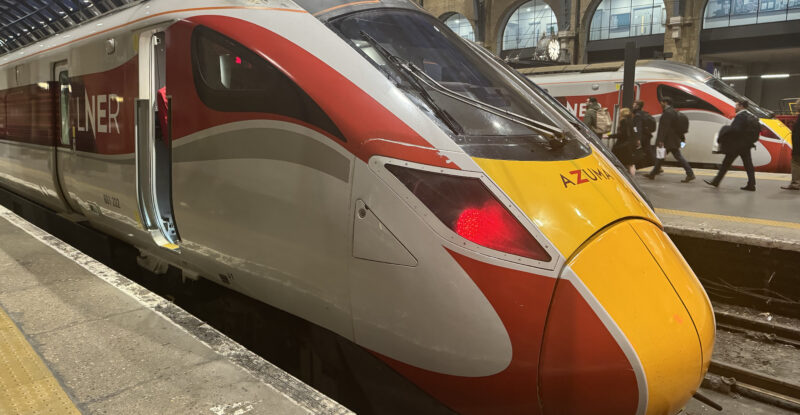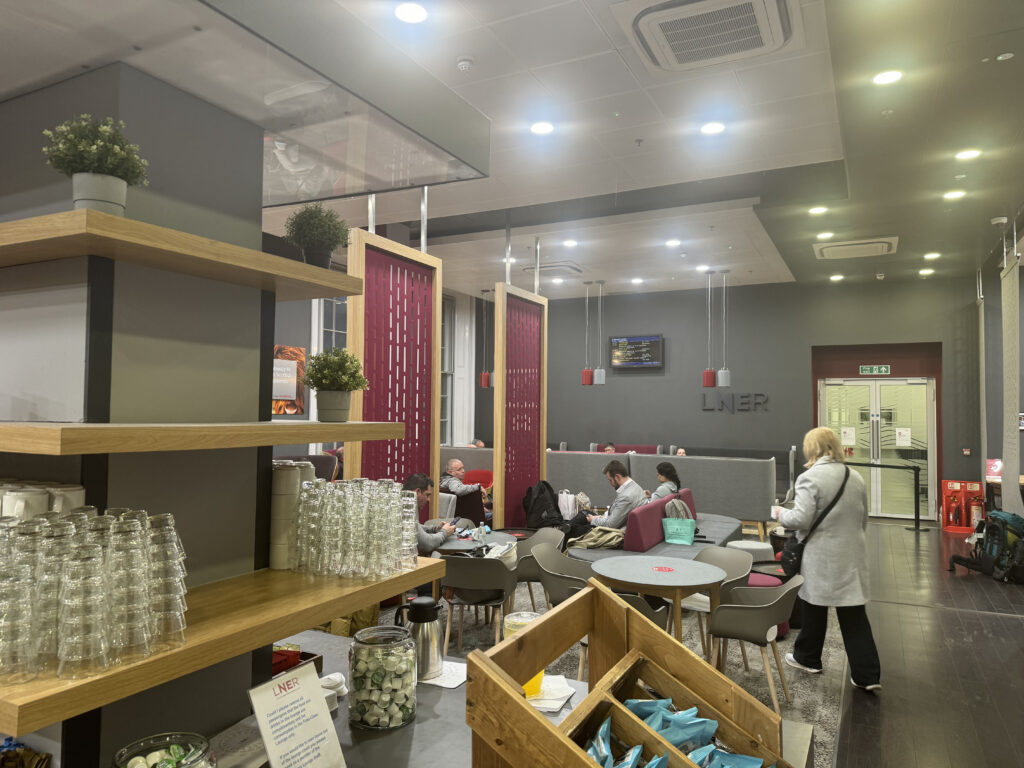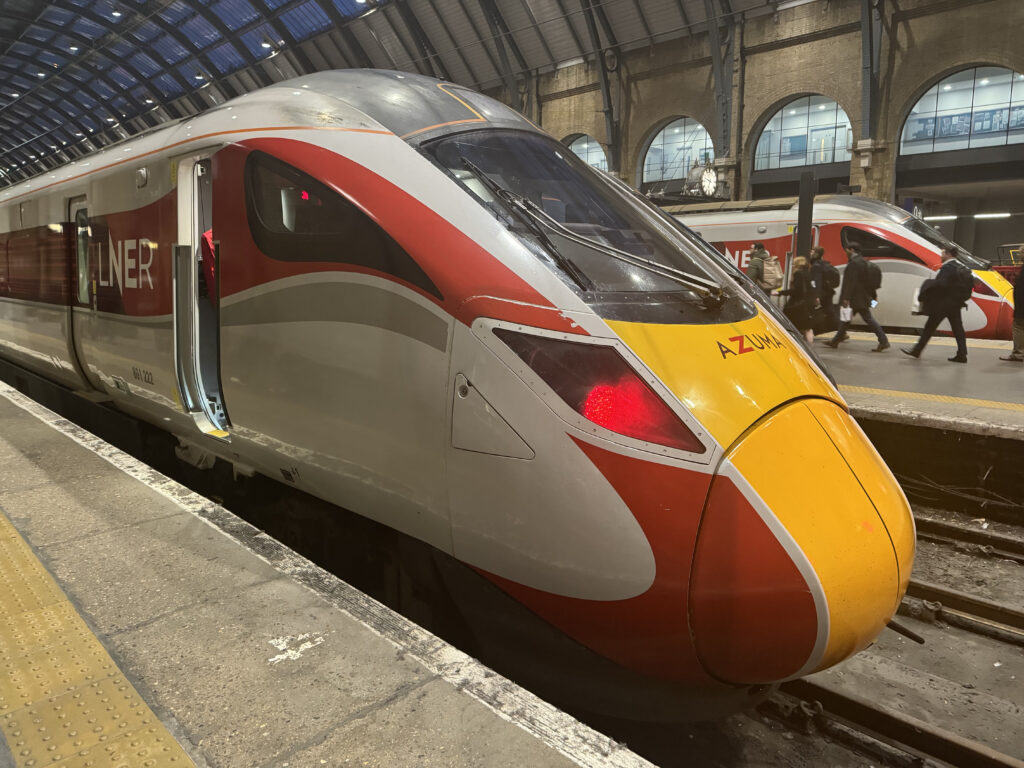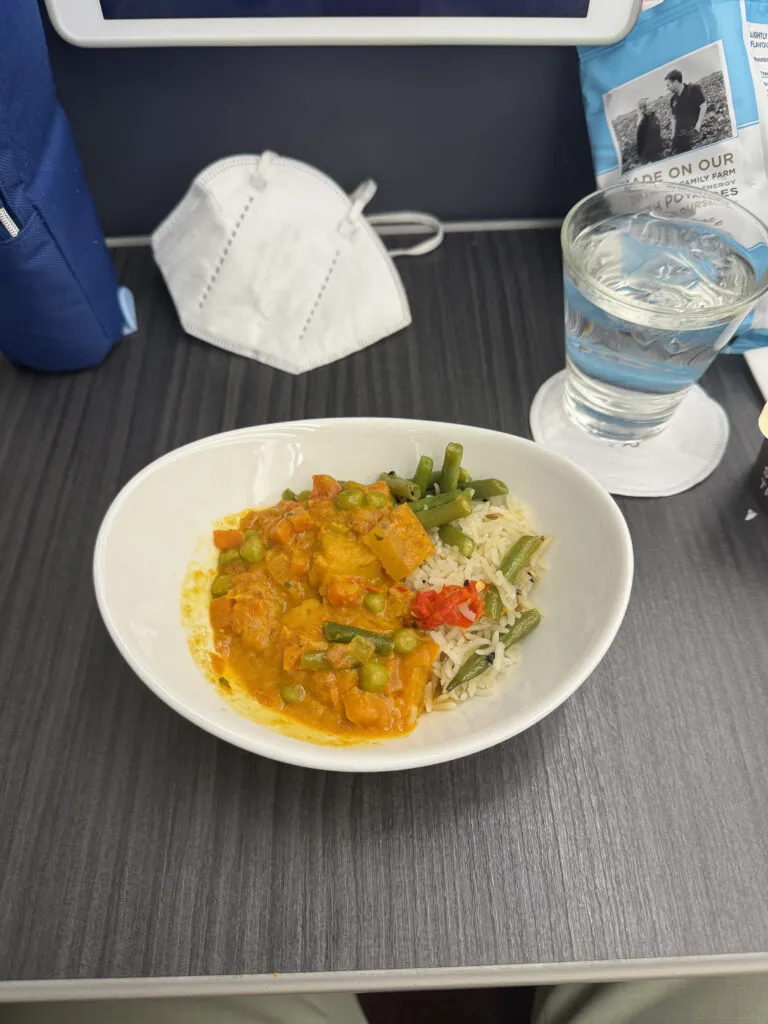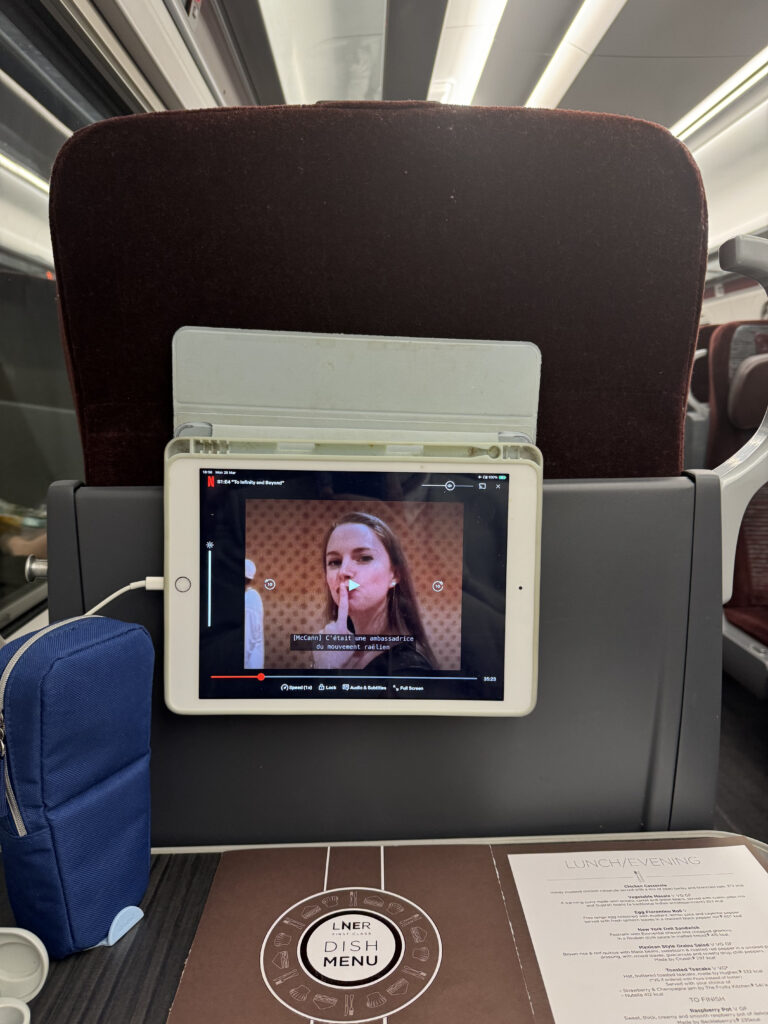 LNER, a British railway operator linking London to North East England and Scotland, lays claim to a storied history that includes some of the grandest trains ever to grace the rails such as the fabled Flying Scotsman. But can passengers still expect a luxurious experience aboard this modern intercity train?
LNER, a British railway operator linking London to North East England and Scotland, lays claim to a storied history that includes some of the grandest trains ever to grace the rails such as the fabled Flying Scotsman. But can passengers still expect a luxurious experience aboard this modern intercity train?
On a recent trip from London to Darlington, I concluded that LNER offers a good quality first class service that may not quite match the golden age of steam but raises the bar for UK train travel.
Having paid a mere GBP 20 for an upgrade via third party bidding platform Seatfrog, I was already in a good mood as I entered King’s Cross, London. This station is an awe-inspiring blend of Victorian history and postmodern renovation, with the cathedral-like original platforms wrapped in a cavernous modern concourse that houses shops and restaurants.
LNER maintains first class lounges at a few key stations along the route, and so I decided to spend some time at the lounge before departure, which is located on the edge of the platforms with the entrance facing onto the concourse.
Upon arrival, I was greeted by staff and welcomed into a large room filled with different seating options organised around a refreshment bar.
The facility has places for groups to relax on sofas and look at live news coverage on large screens, but as I was travelling alone I made a beeline for the workstation pods hidden in a recess on the far side of the lounge. This space has desks, power ports and comfortable bench-styling seating to relax away from the crowds.
After dropping my luggage off at the workstation, I went back into the main area to inspect the facility. The lounge itself is functional and well appointed but not very special. Whilst I appreciated the décor reflecting the destinations on the route, it was (quite literally) dated and in need of a refresh.
Refreshments consisted of orange squash, a coffee machine, and individual packs of biscuits and crisps (chips). Overall, the feeling was of a comfortable waiting room rather than a business lounge, but this is in keeping with UK rail service norms, where you can arrive and board a train up to two minutes before departure with no need to wait at the station.
Boarding began 15 minutes before departure, and after a quick perusal of the station shops I passed through the majestic concourse to board the train.
I was travelling on one of LNER’s Hitachi class 800 “Azuma” trainsets. These are a mainstay of the British intercity service, being also used by GWR for their long distance services. RGN has covered these before, and the only difference from their western cousins is the red and maroon leather materials on the seats. They are comfortable but not luxurious.
Each seat also has a menu outlining the meal service for the trip. LNER operates several different tiers of meal service called Dine, Dish, and Deli. These range from a full hot meal Dine service to cold sandwich Deli service. Options change throughout the day with menus advertised online, but you can expect to pay a higher premium for the more extensive menu.
My train offered the Dish service, which included limited hot meals as well as snacks.
The host took my order while also serving drinks. LNER offers hot, cold and alcoholic drinks including spirits from distilleries local to the route. On this occasion, however, I stayed sober with a ginger ale.
For my meal I chose the vegetarian curry, which was warm and tasty although the portions were on the small side. I also had a raspberry pot for dessert, which was creamy if a bit plain. This was then concluded with a tea and coffee service presented with a sweet treat.
I appreciated that this was served with actual dish and glassware rather than plastic or disposable ones. However, whilst the drinks had coasters, my dish did not come with a placemat and so it moved around a lot on the table.
The crew passed through the carriage regularly to clear away tables, and executed a drinks service no fewer than four times in the 2.5-hour journey. Overall, the meal service was much more elaborate than I had expected, putting LNER above the UK average, and I could have easily spent the journey sampling local delights from the bar menu.
After the meal I inspected the facilities on board.
LNER provides the same accessible seating and toilets as on other operators which is most welcome, but this train still requires a ramp for boarding.
My carriage did have its own toilet which was clean, but the flush was not working which was slightly awkward. The train also has cycle storage throughout which can be booked via the LNER app and website.
I did then try to pass the time using the onboard wifi, but it was very spotty and hard to use. This is common on UK rail companies, but not helped on LNER by the rail operator’s data caps and blocked streaming services. Fortunately I had prepared for this eventuality by downloading content to watch on board.
Nevertheless, as I arrived at my destination I was impressed by LNER’s delivery of a first class product. Its lounge is functional and calm, giving passengers a relaxing place to wait, and the interiors of their trains are comfortable.
However, it is LNER’s onboard service that sets it apart, with good quality food and drinks celebrating local suppliers at the heart of the menu. Its professional, hard-working crew made the service shine, ensuring that LNER can provide an elevated experience.
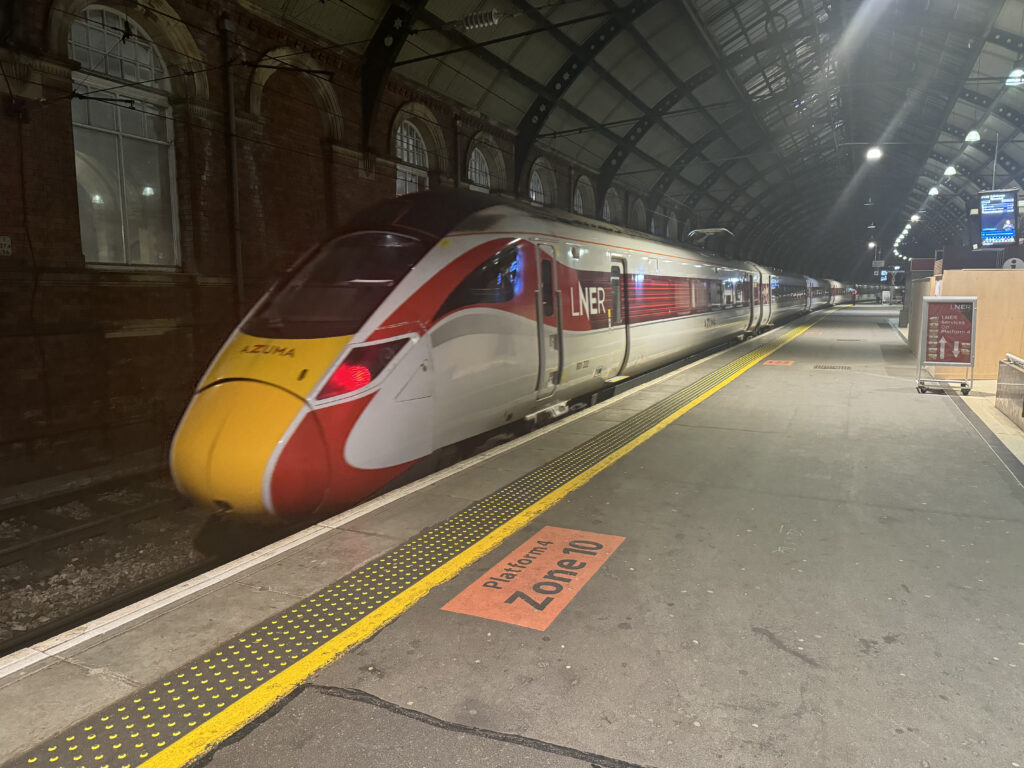
An interesting tidbit: Darlington claims to be the birthplace of the railways, with services beginning in 1825. Image: Fintan Horan-Stear
Related Articles:
- Time and Space: UK first class air transport versus the train
- Avanti West Coast First Class: new interiors but same poor service
- First class on Great Western Railway IET train takes the strain
- Innovative Avanti Standard Premium cabin let down by patchy service
- Europe on track to shunt more air passengers onto rail
- UK first class upgrade app for trains Seatfrog sees growth accelerate
- GWR’s first class lounge at Paddington: Victoria in memoriam
Featured image credited to Fintan Horan-Stear




